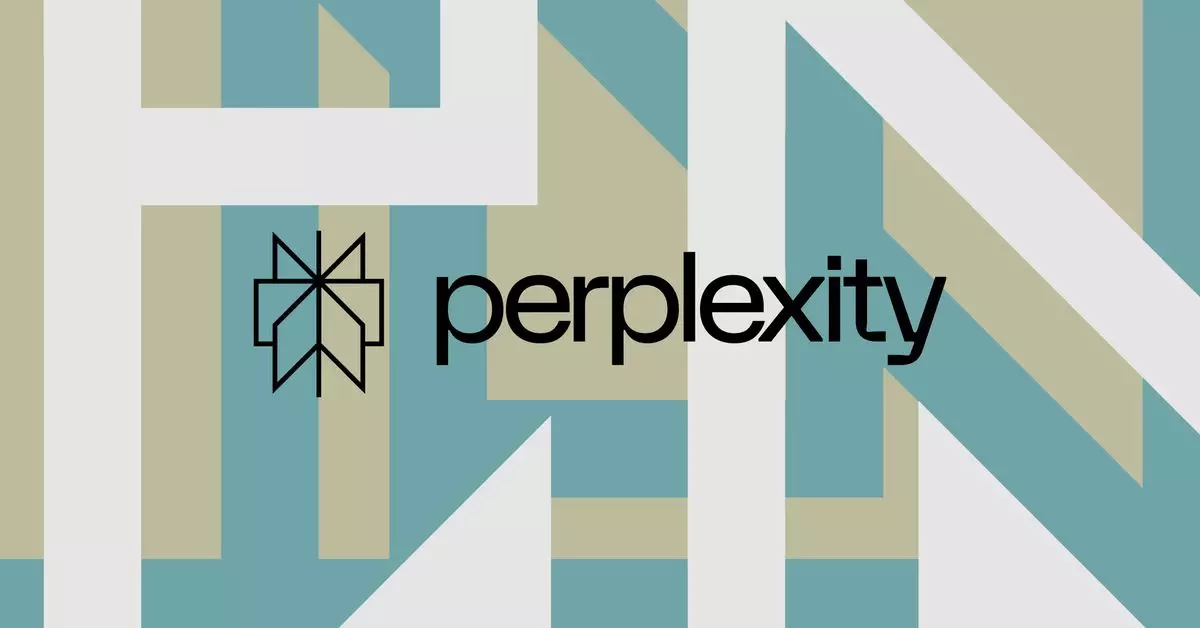The rapid advancement of artificial intelligence (AI) technologies has revolutionized the way we retrieve and interact with information. AI platforms, like Perplexity, serve as search engines that harness data from a myriad of sources to deliver succinct answers to user queries. However, the proliferation of such technologies has sparked a contentious debate surrounding intellectual property rights and the ethical usage of content produced by traditional media outlets. The core of this issue unfolds in the ongoing legal dispute between Perplexity, a notable AI startup, and News Corp, the parent company of prominent publications like The New York Post and The Wall Street Journal.
Context of the Legal Dispute
News Corp’s lawsuit against Perplexity stems from accusations that the AI company has been scraping content from its publications without permission, claiming this practice constitutes mass copying of valuable intellectual property. In response, Perplexity has pushed back, asserting that traditional media entities seem to prefer a model in which publicly reported facts are treated as proprietary. They argue that the essence of facts themselves cannot be owned by any corporation. This statement underscores a broader philosophical and legal question: To what extent can factual information be protected under copyright law if it is expressed in various ways?
While Perplexity maintains that facts are universally accessible and should not incur a fee to leverage, it acknowledges the complexities surrounding the original expressions of these facts. Indeed, the legal framework recognizes that copyright protects not the information itself but the unique expressions and formats through which it is conveyed.
In a measured counterargument, Perplexity describes the ongoing dispute with News Corp as symptomatic of a deeper, adversarial relationship between technology firms and media outlets. In its view, such an antagonistic stance is ultimately self-defeating, hindering what could be a more collaborative relationship aimed at mutual benefit. The company believes that the current regulatory environment constrains its potential to innovate beyond mere compliance with existing laws, focusing instead on revenue-sharing agreements with several media publications. This shift towards building partnerships rather than battles illustrates a burgeoning realization within the tech realm that cooperation may yield better outcomes than confrontation.
Despite Perplexity’s position, the criticisms leveled by News Corp paint a dire picture of intellectual property infringement. The media conglomerate claims that Perplexity’s platform not only reuses significant volumes of copyrighted material without compensation but also undermines journalism by presenting modified content as alternatives to original sources. News Corp’s CEO, Robert Thomson, argues that this behavior constitutes an “abuse of intellectual property” and damages the economic viability of the journalism ecosystem.
The core dispute entails critical ethical questions about how AI technologies should navigate the landscape of protected intellectual content. There exists a significant concern regarding what constitutes fair use in the realm of AI, especially when AI systems learn from and draw upon existing media to generate new content or answers. Proponents of AI innovation argue that the industry must evolve towards new models of information sharing, while opponents stress the importance of protecting the rights and revenues of content creators.
Perplexity’s situation exemplifies the friction that arises when cutting-edge technology encounters established norms and practices. It also reflects broader societal fears about the implications of AI’s capabilities on creativity and originality. With platforms like Perplexity claiming to “skip the links”—thereby invigorating the narrative of bypassing original sources entirely—there lies an imperative to reconcile the convenience of AI with the necessity of maintaining respect for the source material.
As the legal tussles unfold, it becomes increasingly evident that the future of AI and journalism depends not on litigations and adversarial exchanges but rather on fostering collaborative frameworks. Companies like Perplexity may need to pivot and innovate, exploring more sustainable partnerships with media organizations that protect content rights while allowing for the approved use of information.
As the dialogue on intellectual property continues, the call for transparency, mutual respect, and innovative frameworks will become paramount in ensuring that AI technologies serve not only as powerful tools for information retrieval but also as partners to the content creators whose efforts inform and enrich the very data that AI models utilize. The outcome of disputes like the one between Perplexity and News Corp will inevitably shape the future balance between technological advancement and intellectual property rights, setting precedents that could govern interactions between AI and media for years to come.


Leave a Reply